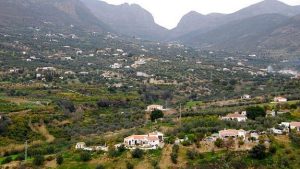enero 4, 2017
As every foreigner living in Spain is more than aware, Spain has been receiving a lot of media attention for its large amount of illegally constructed properties extended all over the country, and the attempts being made by local and regional governments to facilitate the legalisation of said constructions.
This post applies to properties built on both urban and rustic land in the region of Andalucía, as the details can vary from one autonomous region to another.
Background
Historically building regulations in Spain have been largely ignored, especially in the countryside. As a result Spain has been left littered with all manner of illegal buildings, such as:
- Properties constructed without any building permission being obtained at all.
- Properties constructed with little regard to the plans submitted and the building permit issued (i.e. construction in excess of the square metres permitted by the permit).
- Older properties extended during renovations without obtaining building permission, or registering or declaring any extensions built.

Rustic Land and Protected Rustic Land
Land classification is extremely important in determining if there is a solution. Generally it is possible to legalise buildings on rustic land, but to legalise buildings on protected rustic land is almost unfeasible.
General conditions for legalisation
The regional government of Andalucia (Junta de Andalucía) has attempted to clarify the legal status of such illegal buildings and provide a mechanism to legalise or regularise where possible, as long as certain requirements are met:
- That more than 6 years have passed since the completion of the construction (previously 4 years under old legislation).
- The property is not part of an urban planning disciplinary procedure or a judicial process.
- The construction does not occupy land under special protection or cattle trails.
AFO Certificate (Cerificado de asimilado a fuera de ordenación)
An illegally constructed property, which is able to be legalised, may be legalised by applying for a Certificado de fuero de ordenación or Certificado de asimilado a fuera de ordenación. The process involves synchronising and presenting a series of documentation to the planning department of the local Town Hall.
 Each Town Hall charges a local tax in relation to the value of the square meters being legalised. The rate of tax varies from one local government to another and will depend, therefore, on the municipal area the construction is located in.
Each Town Hall charges a local tax in relation to the value of the square meters being legalised. The rate of tax varies from one local government to another and will depend, therefore, on the municipal area the construction is located in.
In addition to this, the property’s Land Registry records will have to be rectified to avoid any future difficulties.
Conclusion
This is an incredibly complex process and no two properties are the same. The mere fact that a property pays rates (IBI) and is connected to utilities (i.e. electricity, water, etc.) does not mean that the property is legally sound. It is because of the complexity of this process that we recommend seeking legal advice from professionals familiar with these procedures, so as to avoid unnecessary expense and complications.
Gabriella Mary Trussler Rowland
Lawyer
4408 Ilustre Colegio de Abogados de Almería



 Each Town Hall charges a local tax in relation to the value of the square meters being legalised. The rate of tax varies from one local government to another and will depend, therefore, on the municipal area the construction is located in.
Each Town Hall charges a local tax in relation to the value of the square meters being legalised. The rate of tax varies from one local government to another and will depend, therefore, on the municipal area the construction is located in.

